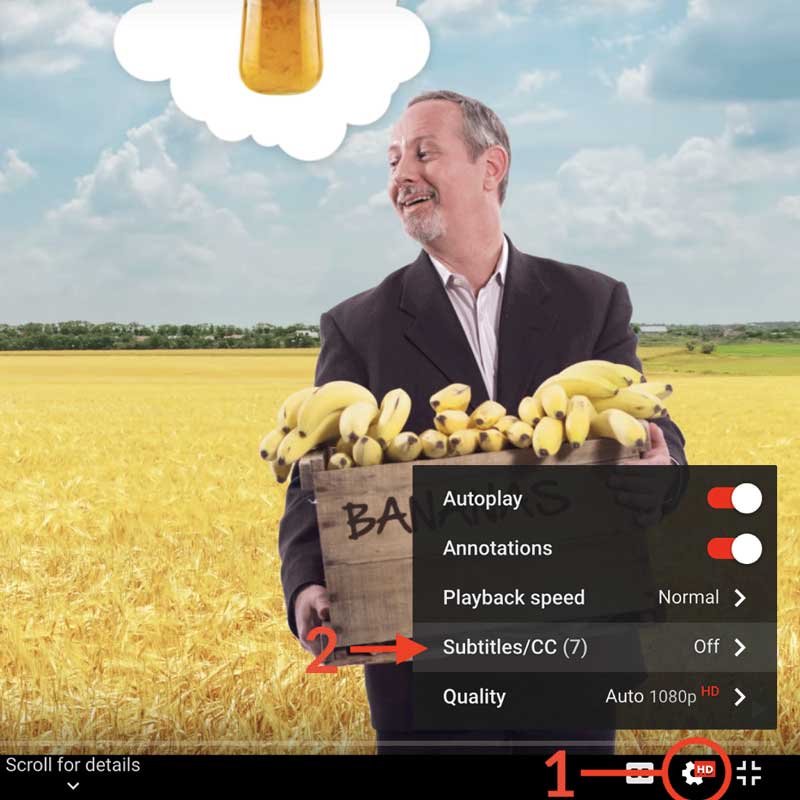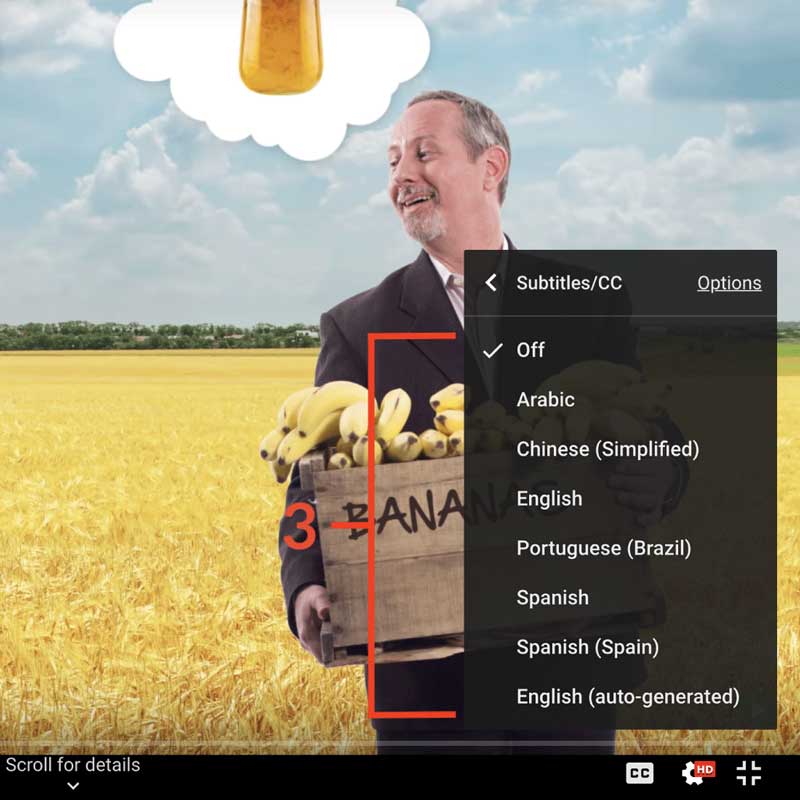Four Reasons Financial Intermediaries Fail
Course Outline
Four Reasons Financial Intermediaries Fail
As we’ve discussed in previous videos, financial intermediaries bridge savers and borrowers. When these bridges crumble, the effects can be disastrous. For businesses, credit shortages can lead to bankruptcy, or layoffs. For individuals, they rely on credit to invest in education or a new home or car. These negative effects show you how crucial intermediaries are to our lives.
Still, what exactly causes failed intermediation? Four answers:
First, insecure property rights. Simply speaking, when you save money at a bank, you expect the ability to pull out your funds when needed. But what if your deposits are frozen? Or confiscated altogether? For instance, in 2013 amidst a financial crisis, the government in Cyprus confiscated bank deposits to help pay down the country’s budget shortfall. You can see how insecure property rights can scare away potential savers.
Second, controls on interest rates. Interest rates are the price of borrowing. Thus, controls on interest rates, often called usury laws, are effectively price ceilings—they set the interest rate lower than the market equilibrium interest rate. With this forced lowering of interest rates, borrowers will want to borrow more, but lenders won’t want to lend. The effect? A lending shortage.
Third, politicized lending. Banks profit by assessing risk, and then loaning, based on that assessment. Banks that excel at assessment succeed. Those poor at it die out. Problems arise when the government intervenes to prop up failing banks, resulting in what we call “zombie banks.” In such cases, intervention undercuts normal competition, and intervention tends to favor banks that are politically connected. In fact, it’s been shown that there’s an inverse correlation between government ownership in banks and a country’s GDP per capita and productivity growth.
Fourth, you have runs, panics, and scandals. Remember, trust is vital to the financial system. When trust erodes, depositors may rush to withdraw their money from banks, causing what is known as a “bank run.” This can cause banks to fail, as we saw during the Great Depression. Scandals can also depress market confidence. Enron, WorldCom and Bernie Madoff may come to mind.
So, which of these four factors contributed to the Great Recession of 2008?
We’ll discuss that in our next video.
Teacher Resources
Related to this course
See all Teacher Resources related to this course
Transcript
Modern economies rely upon financial intermediaries to bridge the gap between savers and borrowers. Much like our real bridges, it's only when the metaphorical bridges of financial intermediation crumble that we recognize just how dependent we are on them. Many businesses rely on credit to operate and to grow. So, when the credit dries up, they go bankrupt and lay off workers, or at the very least they find it harder to keep on growing. Individuals rely on borrowing to invest in education, housing, and to get their car fixed, so they can still get to work even if they don't have enough cash on hand to pay for needed repairs.
When these bridges fail, we can better appreciate how difficult it is to thrive in economically underdeveloped countries. The woes we experience temporarily during a crisis, well, they're just a taste of what is often a more permanent state of affairs in many of the poorer nations. Most people in many poor countries don't have access to a system that gives them a safe and cheap place to invest and grow their money. Nor do they have an avenue to borrow money and invest in their businesses at reasonable cost. That's one reason why many of these economies fail to grow.
So why does financial intermediation fail to get built well in many poorer countries? Why does intermediation sometimes get built and then crumble? Like the rest of the economy, a strong financial system relies on good institutions. There are four primary reasons why financial intermediation might fail: insecure property rights, controls on interest rates, politicized lending, and finally, runs, panics and scandals. First up is -- insecure property rights. When you deposit your money in a bank, you expect to be able to take your money out. That seems pretty straightforward. But it's not always the case.
For example, in Cyprus, government authorities confiscated some bank deposits during the financial crisis of 2013 in order to try to alleviate their massive government budget shortfall. In Argentina and Brazil, deposits have been frozen so that they could not be withdrawn. Some of those banks eventually went under and depositors never really recovered their money. This can happen in stock markets as well. The Russian government confiscated or restricted the value of share holdings in Yukos, a private energy company. In all of these examples, insecure property rights scare savings away and that causes intermediation to fail, leaving borrowers without access to lending.
Intermediation can also break down in less dramatic ways. Many places, for instance, have laws in place to limit the interest rate that someone can be charged for a loan. These are called usury laws. You might think it's outrageous to pay 20% or more in interest on a loan. I've seen loans for 50, 100%. Is that always bad? Well, it's not quite so simple. If an interest rate is just the price of borrowing, then what's a legal limit on that price? A price ceiling. And we know from economics, price ceilings typically don't work well. In other videos, we've covered how price ceilings on gasoline in the 1970s caused massive shortages and very long lines at gas stations.
Likewise, usury laws force an interest rate to be below the equilibrium interest rate. And that's going to mean there will be more borrowers who want to borrow at that controlled rate than there will be lenders willing to lend. This means a funds shortage, and a drop in the overall quantity of lending. So, usury laws typically hamper the flow of money over the bridge and prevent exchange between willing savers and borrowers.
We talked previously about how banks play an important role in assessing risk and lending funds to those who can pay the money back. Of course, many banks do make a fair number of bad loans, but over time competition drives the banks who are worse at lending out of business, while the banks who are better at assessing credit risk -- they are more profitable and they grow. However, this isn't always the case.
We've previously labeled Japan as an economic growth miracle, as the country exploded in prosperity in the second half of the 20th century. However, more recent times haven't been so dynamic. With Japan experiencing the famous “Lost Decade” from 1990 to 2000, where their economy barely grew at all. To some extent, the stagnation has unfortunately continued. Part of the problem in Japan was due to the failure of their financial intermediaries. There were banks in Japan that were insolvent -- in essence dead, -- but they were propped up by the government, turning them into zombie banks.
Now, propping up these zombies disabled the competitive process that over time moves resources and funds to the better banks who are better able to evaluate, risk, and lend, and thus it kept funds away from the better and more profitable companies with the brighter futures. That's what zombies will get you. Government involvement in banks, whether through bailouts or direct ownership or intervention -- it also tends to lead to money being lent to those who are politically connected. So rather than scanning the landscape for loan candidates based on economic merit, bank managers tend to direct money based on political connections. We can see this failure of intermediation in the data. The larger the fraction of government ownership of banks, the worse a country does in terms of both growth of GDP per capita, and growth in productivity.
Trust is a vital part of the financial system as well. Banks maintain fractional reserves, meaning that they don't have enough cash on hand to give every depositor his or her money back if they all were to come and wish to withdraw the money within a short period of time. If depositors lose trust in banks' ability to give them back their money, they'll rush to the bank to pull out their deposits, causing what is called a bank run. A bank run can cause banks to fail or suspend operations, which in turn leads to a rash of business failures due to a credit crunch. Bank runs were seen in the American Great Depression, and they were one of the primary reasons almost half of the banks failed during that time.
In response, the U.S. government created the Federal Deposit Insurance Corporation, or FDIC, to try and prevent further bank runs. The FDIC ensures that depositors can get their money back, even if their bank fails. We'll talk more about the Great Depression in our section on business cycles. Trust issues are not limited to banks. Scandals such as those connected to Enron, WorldCom, and Bernie Madoff shook the trust of investors when they happened. If investors think that most managers are mainly looking to rip them off rather than build long term capital growth, that will scare investors away.
So, we've covered four common causes of failure in financial intermediation. Which of these came up in the Great Recession of 2008? That's the topic we'll turn to next.
Subtitles
- English
- Spanish
- Chinese
- Hindi
- French
- Arabic
Thanks to our awesome community of subtitle contributors, individual videos in this course might have additional languages. More info below on how to see which languages are available (and how to contribute more!).
How to turn on captions and select a language:
- Click the settings icon (⚙) at the bottom of the video screen.
- Click Subtitles/CC.
- Select a language.


Contribute Translations!
Join the team and help us provide world-class economics education to everyone, everywhere for free! You can also reach out to us at [email protected] for more info.
Submit subtitles
Accessibility
We aim to make our content accessible to users around the world with varying needs and circumstances.
Currently we provide:
- A website built to the W3C Web Accessibility standards
- Subtitles and transcripts for our most popular content
- Video files for download
Are we missing something? Please let us know at [email protected]
Creative Commons

This work is licensed under a Creative Commons Attribution-NoDerivatives 4.0 International License.
The third party material as seen in this video is subject to third party copyright and is used here pursuant
to the fair use doctrine as stipulated in Section 107 of the Copyright Act. We grant no rights and make no
warranties with regard to the third party material depicted in the video and your use of this video may
require additional clearances and licenses. We advise consulting with clearance counsel before relying
on the fair use doctrine.




